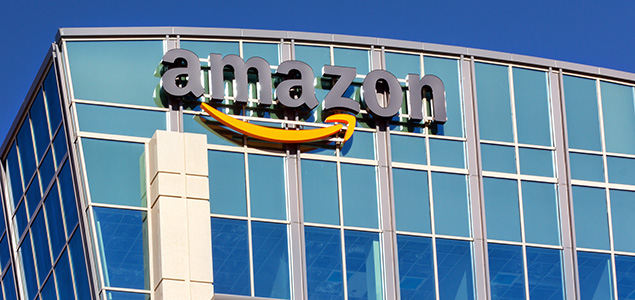By Susan Bloom
Though Amazon shares dropped last week following the October 27 announcement that the company’s Q3 2016 earnings fell short of analysts’ expectations, insiders warn electrical distributors not to misread the underperformance as a sign that Amazon is failing to meet its larger goals. With Amazon’s Q3 2016 net sales increasing to $32.7 billion, 29 percent over prior year levels, “their performance reflected a nice increase from Q3 2015,” confirmed industry expert Justin King, Senior Partner at Washington, D.C.-based B2X Partners (www.B2XPartners.com) and founder of eCommerceandB2B.com. “Amazon has never cared what Wall Street thinks about them anyway; for Amazon, it’s about the customer, not the investor dollar,” he said. “Amazon’s revenues will fall when they stop meeting customer expectations—and their top line didn’t fall.”
Following, tED magazine interviewed King about the continued growth of the online giant’s new ‘Amazon Business’ pillar, how this business segment could impact electrical distributors, and how distributors can protect themselves against this growing industry threat.
tED magazine: Can you fill us in on where Amazon Business is currently?
King: Once considered a side business to Amazon’s more established pillars—Prime, Cloud, and Marketplace—Amazon Business is now a key fourth pillar and has become one of the company’s top priorities in what they describe as a ‘must-win’ category. While they’re targeting bigger players like Grainger, MSC, and Staples today and aren’t going after smaller electrical distributors yet, all indications are that they will continue to broaden their product offering.
tED: What could the growth of Amazon Business mean for traditional electrical distribution?
King: Most distributors are probably experiencing a ‘leak’ of revenues, orders, and customers to the big national players and Amazon Business, an entity that makes the finding, buying, transaction, and fulfillment of products easy, is part of the big players. Leaks start small and get bigger and bigger as the pressure builds. Part of Amazon’s earnings miss in Q3 was attributed to the company’s investments into new distribution centers it’s establishing to create a closer epicenter for business and retail products to customers. Electrical product manufacturers are increasingly using Amazon Business as a ‘distributor,’ which enables them to say that they’re not selling direct to end users. Meanwhile, Amazon Business is planning to launch 80 new online features to make the buying process even easier and is continually hiring people and resources onto the Amazon Business team.
tED: How do you recommend that electrical distributors protect themselves against, or compete with, Amazon Business?
King: Despite the growing threat to the industry that Amazon Business may pose, there’s a message of hope. On the one hand, electrical distributors have an advantage over Amazon, Grainger, and other online giants in that they know their products and applications better than anyone; Amazon doesn’t have specialists or relationships as deep as the local guy. At the same time, the internet is the great equalizer—Amazon may be bigger than most electrical distributors, but the internet can make companies look bigger than they really are. If local electrical distributors can extend their unique branch experience, knowledge, and relationships to customers online, they have an opportunity to compete with Amazon and even beat them. To do this, they have to move quickly like Amazon and start building a competitive online presence, a time-consuming process which may require an investment in people and resources that don’t currently reside in their company. This can be scary for many distributors, who may not know the vendors, consultants, culture, questions to ask, or how to manage and compensate these creative/web people; for this reason, it can help to bring in a partner or advisor to guide these projects and hold the people/resources accountable.
tED: What takeaway message would you like to share with electrical distributors?
King: While this business is still about relationships at the local branch, e-commerce is no longer just about convenience, but about survival. With the growth of entities like Amazon Business, the local branch experience may not go away, but the frequency of it may diminish because someone else offers customers an easier experience for certain products. I’d advise distributors to offer the best of both worlds—to have the coffee and doughnuts onsite for customers while also offering an online mechanism that makes it easy for customers to place an order at 7 o’clock at night. Extend the brand experience in such a way that it remains rich with people and expert interactions, while making it easy for customers to do their job anytime.
—
Bloom is a 25-year veteran of the lighting and electrical products industry. Reach her at susan.bloom.chester@gmail.com.
Tagged with Amazon, Amazon Business, e-commerce, earnings, Exclusive Feature, lighting, tED
